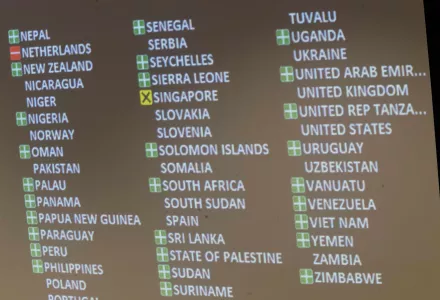Nuclear Disarmament and the Prohibition Treaty
A seminar with Sébastien Philippe, Stanton Nuclear Security Postdoctoral Fellow with the International Security Program and Project on Managing the Atom.
A seminar with Sébastien Philippe, Stanton Nuclear Security Postdoctoral Fellow with the International Security Program and Project on Managing the Atom.

On July 7, 2017, 122 states voted at the United Nations to adopt the Treaty on the Prohibition of Nuclear Weapons. As of early 2019, there are 70 signatories and the treaty is seen as likely on track for a late 2019 or early 2020 entry-into-force. No nuclear weapon states participated in the talks leading to the treaty or in the vote, leading to suggestions the treaty is primarily a normative instrument aimed at delegitimizing nuclear weapons. Rather than see the treaty as an isolated legal instrument, this talk will offer a view on why and how the treaty could advance nuclear disarmament by contributing to the emergence of a new “regime complex” for disarmament. In particular, the talk will address what the state parties need to do to advance the treaty’s implementation, what relationships with the existing non-proliferation regime and other international institutions could usefully be developed, and what new structures may be needed to fulfill the treaty's core obligations.